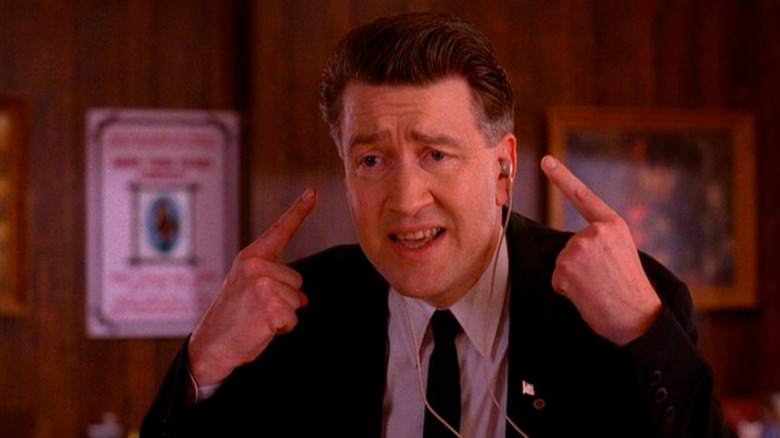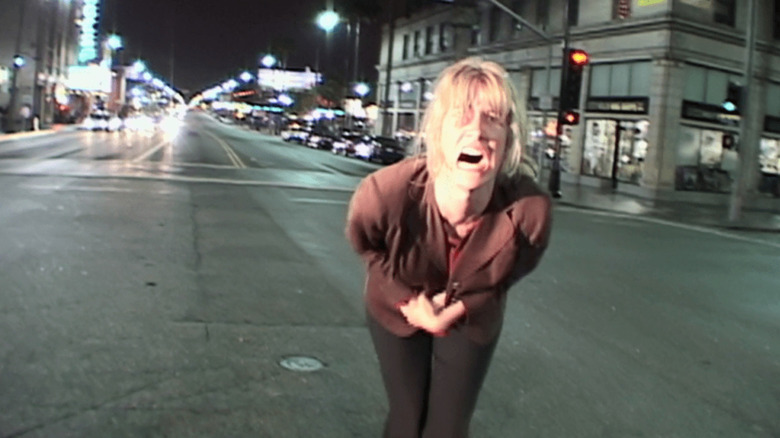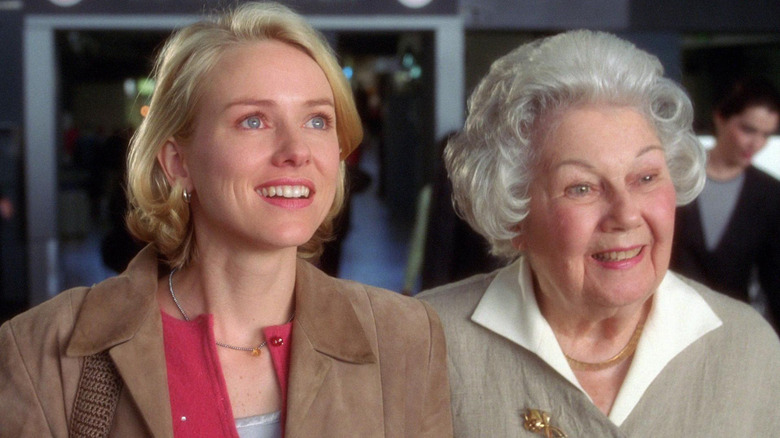The Biggest Influence On David Lynch Didn't Come From A Filmmaker
We may receive a commission on purchases made from links.
If you're a creative person, you probably understand more than anyone else that inspiration can come from anywhere. While many artists find themselves influenced by other artists or art movements, others have gone on record saying that things like nature or sociopolitical landscapes have inspired them to tell their story through an artistic lens.
This can certainly be said for acclaimed filmmaker David Lynch, whose work often incorporates surreal imagery as allegories. The character of the Bum in "Mulholland Drive," which symbolizes the hidden horrors of Hollywood, and the nuclear bomb in "Twin Peaks: The Return," an allegory for death and rebirth, are two of many examples that come to mind when you think of Lynch's penchants for the strange and uncanny. Of course, the ideas for these symbols don't just spring from nowhere — there is something that happens in the real world that inspires these to be put to the screen. You can easily spend hours researching the various spiritual and political influences behind individual Lynch works — and we recommend doing just that — as just discussing them in an article wouldn't do them justice.
As for Lynch's core inspiration, he revealed it in an interview with Loud and Quiet. For a filmmaker as iconic and singular as him, it shouldn't be surprising that his biggest influence wasn't a filmmaker that came before him, but a city where he was studying art.
The dread of the city
When speaking to Loud and Quiet, Lynch attributed his creative awakening to his education at the Pennsylvania Academy of Fine Arts. However, this was less about the school itself and more about its location in the city of Philadelphia. He had his "first thrilling thought," as he calls it, living in the city with his wife Peggy and newborn daughter Jennifer.
"Philadelphia, more than any filmmaker, influenced me," he explained. "It's the sickest, most corrupt, decaying, fear-ridden city imaginable. I was very poor and living in bad areas. I felt like I was constantly in danger."
At the same time, however, Lynch explained that he had never felt anything that "fantastic" before then. He explained his rationale behind this: no two areas of Philadelphia felt alike at any given point in the day.
"Where I was, it was busy in the daytime in one area," he said. "At night, because it was a factory area, there was nobody there, so it was all different kinds of moods and different phases and different fears in the air."
A mixture of heaven and hell
Lynch apparently wasn't exaggerating when he said he was living in a bad neighborhood at the time. In a book of collected interviews by Chris Rodley named "Lynch on Lynch," he explained that his family had been robbed at least twice and that a child was shot to death down the road from their residence.
"The feeling was so close to extreme danger, and the fear was so intense," he told Rodley. "There was violence and hate and filth, but the biggest influence in my whole life was that city."
This context puts a lot of Lynch's work into perspective. If there is one thing that most Lynch movies have, no matter their other meanings or symbolism, it's a prevailing sense of dread. His work famously ensures that you are on high alert even when viewing things that are typically mundane in nature — the Oxford Dictionary has even added "Lynchian" to the vernacular to describe this feeling. In his worlds, there is something innately wrong with almost all facets of American life, something terrifying that is lurking underneath the surface. Until it does come up to the surface, his characters are left to worry and fear about that ever-present feeling of discomfort. In many cases, the only way that the suffering would end, unfortunately, is through death. You can thank Philadelphia for this.


